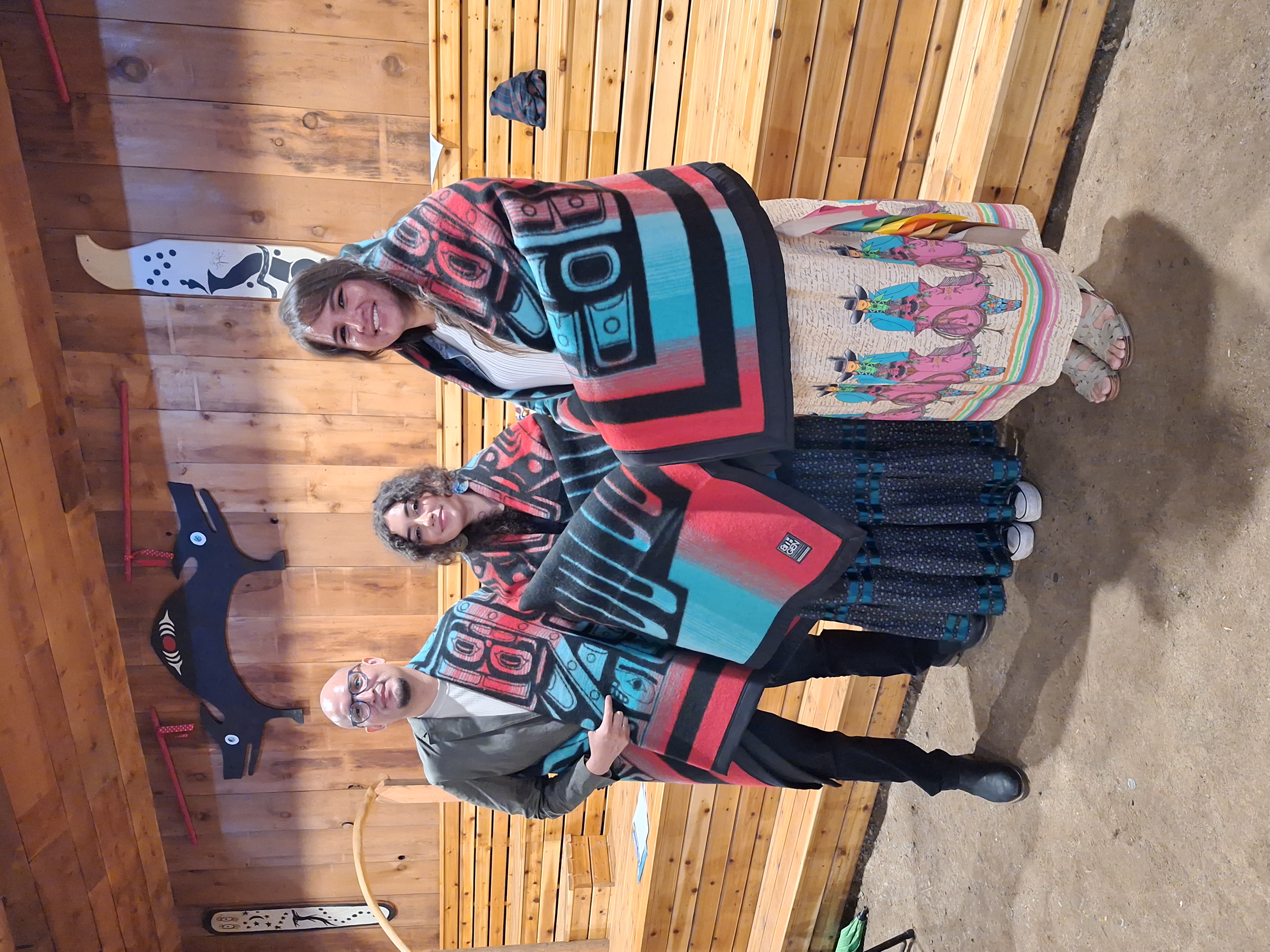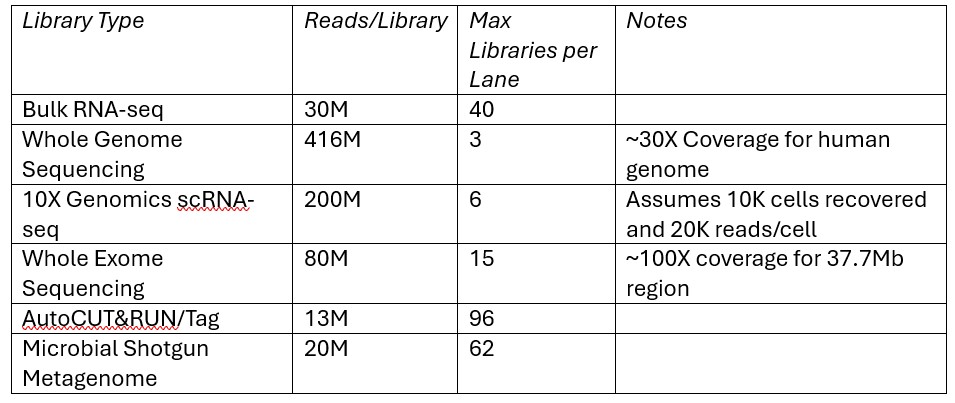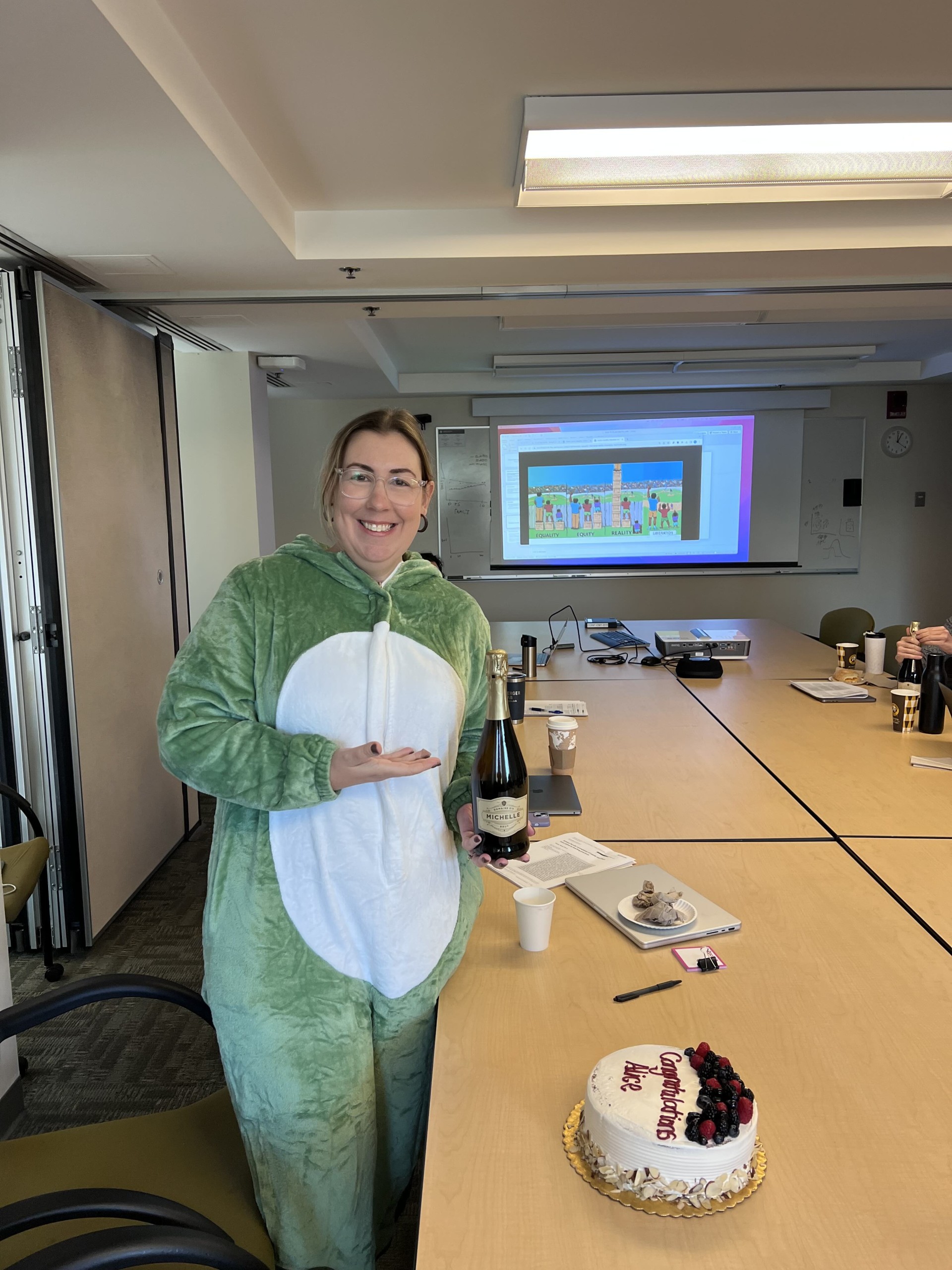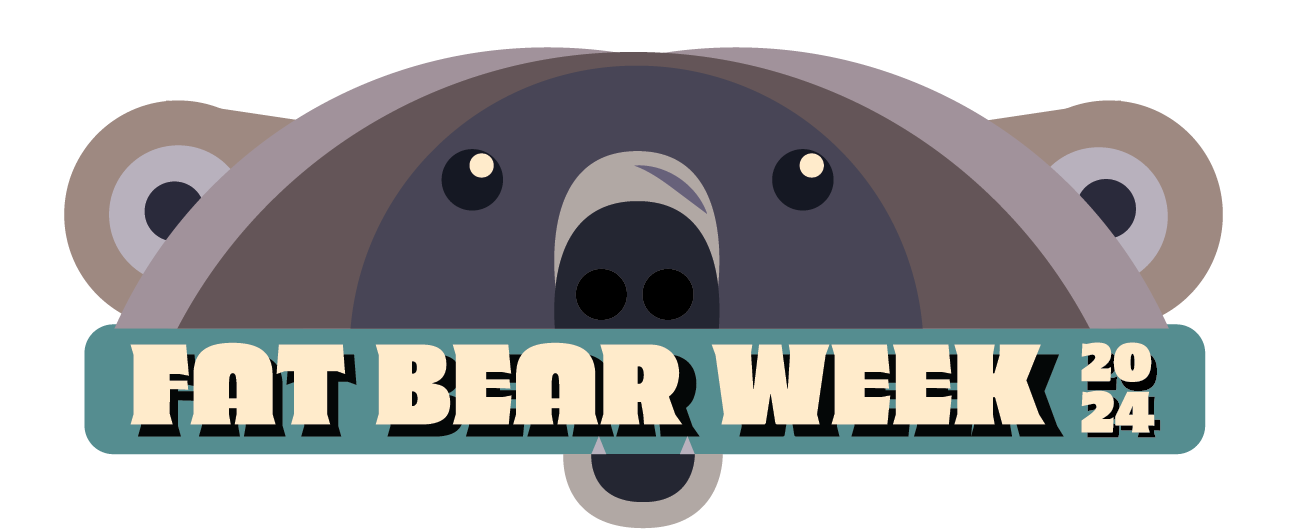
|
|
OCTOBER 2024
|
|
|
IN THIS NEWSLETTER:
- From the Cancer Consortium
- Consortium Kudos
- In the Spotlight
- Current Funding Opportunities
- Save the Date - Upcoming Events
- From the Research Development Office
- From the Office of Community Outreach & Engagement
- From the Consortium Shared Resources
- Consortium Leadership Spotlight: Dr. Alice Berger
|
|
|
|
FROM THE CANCER CONSORTIUM
|
|
|
|
Consortium Kudos
Congratulations to Drs. Riki Peters and Chris Li! Working in collaboration with Dr. Timothy Thomas (Alaska Native Tribal Health Consortium), these two Cancer Consortium researchers recently received a SPORE grant for the Translational Research Program in Colorectal Cancer Disparities (TRPCD).
The TRPCD is the first SPORE focusing on cancer disparities to be funded. The SPORE’s primary goal is to address disparities in colorectal cancer (CRC) incidence and mortality, which are higher among Alaska Native and African American populations. To do this, Drs. Li, Thomas, and Peters will work to improve CRC risk prediction, early detection, and outcome prediction; identify biomarkers related to lethal CRC and treatment response in diverse patients; and test the effectiveness of novel interventions in clinical trials consisting of diverse patients.
|
|
|
|
“The SPORE will enable us to expand the research to better understand the underlying biology and ultimately improve survival,” said Dr. Peters. This project builds on a strong collaboration with the Alaska Native Tribal Health Consortium. Dr. Timothy Thomas highlighted, “Alaska Native peoples have been concerned about their very high colorectal cancer rates—which are among the highest in the world—for a long time and have undertaken dedicated efforts that led to substantial increases in CRC screening.”
|
|
|
|
Dr. Christopher Li added, “The SPORE will allow us to expand our research to conduct molecular tumor profiling studies and launch a clinical trial for rectal cancer.”
Drs. Peters and Li are both members of the Consortium’s Cancer Epidemiology, Prevention & Control research program. Additionally, Dr. Li serves at the associate director of Diversity, Equity, and Inclusion for the Consortium.
|
In the Spotlight
The following interinstitutional collaborations by Cancer Consortium members were featured in the most recent edition of Fred Hutch's Science Spotlight:
- "Determinants of lung cancer preventive care in at-risk urban American Indians and Alaska Natives" involved collaborative work by Drs. Wendy Barrington (Cancer Epidemiology, Prevention & Control), Myra Parker (Cancer Epidemiology, Prevention & Control), and Matty Triplette (Cancer Epidemiology, Prevention & Control). Additionally, the Consortium facilitated access to AI/AN communities, provided resources for collaborative research, and supported the use of community-based participatory research for this project.
- "Reactivating interest in HSV shedding after solid organ transplant" involved collaborative work by Drs. Maggie Green (Hematologic Malignancies), Anna Wald (Pathogen Associated Malignancies), Michael Boeckh (Cancer Immunology), Amanda Phipps (Cancer Epidemiology, Prevention & Control), and Steve Pergam (Hematologic Malignancies).
- "Reconsidering how to assess HSV-2 vaccine responses" involved collaborative work by Drs. Emily Ford (Cancer Immunology), Aude Chapuis (Cancer Immunology), and David Koelle (Pathogen Associated Malignancies).
- "Understanding how microbial imbalances may influence Juvenile Dermatomyositis, a rare immune-mediated disease" involved collaborative work by Drs. Neel Dey (Pathogen Associated Malignancies) and Anne Stevens (Hematologic Malignancies).
- "Outcomes improving for all Fred Hutch stem cell transplant patients" involved collaborative work by Drs. Paul Carpenter (Hematologic Malignancies), Ted Gooley (Biostatistics & Computational Biology), Laurie Burroughs (Hematologic Malignancies), Rachel Salit (Hematologic Malignancies), Neel Bhatt (Hematologic Malignancies), Elizabeth Krakow (Hematologic Malignancies), Ann Dahlberg (Hematologic Malignancies), Corinne Summers (Cancer Immunology), Masumi Ueda Oshima (Hematologic Malignancies), Effie Petersdorf (Hematologic Malignancies), Phuong Vo (Hematologic Malignancies), Laura Connelly-Smith (Hematologic Malignancies), and Stephanie Lee (Hematologic Malignancies).
- "Mapping tumor cell heterogeneity in castrate-resistant prostate cancer" involved collaborative work by Drs. Lawrence True (Prostate Cancer), Peter Nelson (Prostate Cancer), and Michael Haffner (Prostate Cancer).
|
|
|
|
|
|
|
CURRENT FUNDING OPPORTUNITIES
|
NCI Early Career Cancer Clinical Investigator Award (ECIA) Administrative Supplement
The Early Career Cancer Clinical Investigator Award (ECIA) recognizes and supports outstanding early career clinical investigators who demonstrate a commitment to becoming an academic clinical researcher and supporting their cancer center’s NCI-funded clinical trials enterprise. The ECIA is designed to promote the retention of early career investigators who wish to initiate a career path that focuses on interventional cancer clinical trials and academic clinical research. The award provides salary support to individuals who do not have independent research grant funding as a Principal Investigator.
Eligibility Criteria for Clinical Investigator Candidates
- The candidate must not be the PI of a National Institutes of Health (NIH) peer-reviewed research grant of at least $125,000 in direct costs per year for a minimum of 3 years, with the exception of mentored career development awards or awards where the PI is required to be mentored by another investigator; or the PI of a peer-reviewed research grant of at least $125,000 in direct costs per year for a minimum of 3 years from any of the organizations listed in the RFA.
- The candidate must be a full-time faculty member, eligible for promotion, and at least two years post last clinical fellowship and no more than six years from initial academic appointment at the time of the application submission deadline of November 25, 2024 (including appointments held at other institutes).
Application Information
The Fred Hutch/University of Washington/Seattle Children’s Cancer Consortium can submit one application to this funding opportunity. All interested candidates should send a one-page letter of interest (LOI) that includes the candidate’s suitability for the award, a half-page description of planned activities, and an attestation that the candidate meets the full eligibility criteria to cancerconsortium@fredhutch.org by Friday, October 4th, 2024.
One applicant will be selected by Consortium leadership to submit an application for the November 25 submission deadline. An additional LOI from the selected candidate is due to the NCI by Monday, October 14th.
Key Dates
- Internal LOI Due: October 4, 2024
- NCI LOI Due: October 14, 2024
- Applications Due: November 25, 2024
|
Administrative Supplements to Support Cancer Disparity Collaborative Research (Clinical Trial Optional)
The purpose of this NOFO is to promote new cancer disparities research among investigators who do not normally conduct it and to encourage the partnership of experienced cancer research investigators with cancer disparities-focused researchers that is intended to accelerate and strengthen multi-disciplinary cancer disparities research in wide ranging areas. Proposed collaborations should focus on achieving research objectives that by necessity rely on diverse and complementary expertise, technical capabilities, and resource sets. Importantly, the supplemental proposal is required to be within the scope of the parent award and should expand the original aims to include a cancer disparity component and possible inclusion of international comparator cohorts.
Upcoming Application Receipt Due Dates: January 23rd, 2025
|
Survivorship Pilot Award
The Cancer Consortium Survivorship Program invites proposals of high impact and innovation that will promote new research directions focused on cancer survivors. The goal of this award is to stimulate cross-institutional collaborations (Fred Hutch, UW, Seattle Children’s) and/or new collaborations between Consortium investigators who have not previously worked together.
According to the National Cancer Institute, "Survivorship focuses on the health and well-being of a person with cancer from the time of diagnosis until the end of life. This includes the physical, mental, emotional, social, and financial effects of cancer that begin at diagnosis and continue through treatment and beyond. The survivorship experience also includes issues related to follow-up care (including regular health and wellness checkups), late effects of treatment, cancer recurrence, second cancers, and quality of life. Family members, friends, and caregivers are also considered part of the survivorship experience." However, for the purposes of this application, projects that focus on timepoints at time of cancer diagnosis and treatment will be accepted only if they are clearly linked to a long-term health or psychosocial outcome. Health services research proposals otherwise meeting these criteria are also welcome.
Funding details: Up to $50,000 direct costs over 1 year, to begin June 1, 2025. Payment of indirect costs is not allowed for this award.
Click here to view the RFA with additional details, including application instructions.
Eligibility Criteria:
2) Priority will be given to applications that involve cross-institutional collaborations (investigators with primary appointments at different Consortium partners) and/or new collaborations (which can be among investigators based at the same Consortium partner but who have no previously co-funded work and no significant non-funded prior collaborations).
3) Priority will be given to investigators who have not previously received a Survivorship Pilot Award.
4) A member of the application team will be asked to pitch their proposal at the "Late Effects & Survivorship Seminar" on January 9, 2025 (1-3pm).
|
|
|
|
|
|
|
UPCOMING EVENTS
|
» [Ongoing] Steam Plant Seminar Series
Please join us in the Steam Plant O’Mack Suites (Fred Hutch Campus) at 4pm on Wednesdays for a seminar series organized by Steam Plant trainees.
- October 9th: Emily Park (Headley Lab)
- October 16th: Rula Green Gladden (Furlan Lab)
- October 23rd: Gary Zhao (Hadland Lab)
- October 30th: Ali Turan (Markey Lab)
- November 13th: Angie Aguire-Tobar (Sinnott-Armstrong Lab)
- November 20th: Siegan McKeller (R. Bradley Lab)
- December 4th: Rasia Glabman (Comparative Medicine, Pathology)
- December 11th: Bleakley Lab
A schedule of talks can be found on the Steam Plant’s Community CenterNet site ( *requires FH credentials). To receive notifications, please join the mailing list at https://lists.fhcrc.org/postorius/lists/steamplant-seminar.lists.fhcrc.org/. You will need to copy and paste this link into your browser, if using a Mac. If you are working remotely, you will need to be on VPN to access the listserv.
|
» [Ongoing] Integrated Research Center Seminar Series
Immunotherapy Integrated Research Center (IIRC) Seminars
Pathogen Associated Malignancies Integrated Research Center (PAM IRC) Seminars
- October 16th: Joshua Schiffer, MD, MSc, Fred Hutch, "The Passenger Hypothesis for the HIV Reservoir" (2pm, Pelton Auditorium, Fred Hutch Campus)
|
» October 15-16, 2024: NCI Office of Data Sharing Annual Data Sharing Symposium
On October 15th-16th, the NCI Office of Data Sharing (ODS) is hosting the Annual Data Sharing Symposium titled Driving Cancer Advances through Impactful Research inside the Clinical Center at the National Institutes of Health in Bethesda, MD.
This two-day event will include learning sessions, panel discussion and thinktank opportunities to address meaningful data sharing and data use and will be followed immediately by the NCI Cancer Research Data Commons (CRDC) Symposium which will focus on how this data science infrastructure fits in the data sharing lifecycle to support cancer research.
To see more information or register for the event, click here.
|
» November 14, 2024: Joint BOC + CEPC Program Retreat!
Please save the date for a joint retreat hosted by the Consortium's Breast & Ovary Cancers (BOC) and Cancer Epidemiology, Prevention & Control (CEPC) Programs. The retreat will take place from 8:00am-3:00pm on Thursday, November 14th, in the O’Mack Symposium Suite in the Steam Plant Building (Fred Hutch campus).
The theme for this retreat is "Understanding disparities contributing to oncogenesis and cancer outcomes." This is a unique opportunity to learn from leading minds in the field, alongside basic scientists, epidemiologists, and clinicians involved in developing genetic tests for predicting patient outcomes and response to therapy.
We are especially thrilled to announce that our keynote speaker for this year's retreat is the esteemed Professor Melissa Davis from the Morehouse School of Medicine. Dr. Davis’s pioneering research is leveraging high-throughput genomics technologies to uncover how genetic underpinnings interplay with social factors to drive health disparities. A testament to her original and highly rigorous research program is that her team was just awarded a Cancer Research UK Grand Challenge Award.
|
|
|
|
|
|
|
FROM THE RESEARCH DEVELOPMENT OFFICE
|
ACCA Team Science Network Meetings
The Association of Cancer Center Administrators (ACCA) hosts a bimonthly Team Science Network meeting to discuss various topics related to facilitating team science specifically at cancer centers. Meetings take place on the first Wednesday of every other month from 11am-12pm PT and are open to anyone with an interest in research development and team science. The next meeting will take place on Wednesday, December 4th.
|
|
|
|
FROM THE OFFICE OF COMMUNITY OUTREACH & ENGAGEMENT
|
OCOE’s Cancer Health Equity NOW! Podcast
Are you all caught up on the OCOE’s Cancer Health Equity NOW podcast episodes?
In Season 4, Episode 8 OCOE staff talk with Andrea Suzuki, Fred Hutch Clinical Patient Navigator, and Lucy Echevarria, Bilingual Clinical Trial Specialist with the NCI’s Cancer Information Service about Clinical Trials. This episode was recorded in English and Spanish. Click here to access this latest episode and past episodes.
|
|
|
|
|
Next Cancer Action Plan of Washington Coalition Meeting: October 30, 2024
|
|
|
|
You provided feedback to inform the development of the 2025-2030 Washington State Comprehensive Cancer Control Plan. Come hear about the final plan and opportunities for future statewide collaboration!
- Date and time: Wed, October 30th, 2024. 9:30am-3:30pm
- Location: Highline College, 2400 S 240th St, Des Moines, WA 98198 (NOTE: Alternate locations are being hosted across the state, including a virtual option. See registration for more information.)
- Register here: https://bit.ly/CAPOWOct2024
|
|
|
|
OCOE’s Indigenous Cancer Health Equity Staff recognized!
On Wednesday, September 25th, 2024, the South Puget Intertribal Planning Agency’s (SPIPA) Comprehensive Cancer Control Program (CCCP) unveiled their new 2024-2034 Tribal Cancer Plan. The process of writing this ten-year plan to reduce the burden of cancer in the five SPIPA Tribal communities took almost two years. As part of this milestone, SPIPA CCCP staff recognized community members and cancer champions for their contributions to this work in a Blanket Wrapping Ceremony. A blanket ceremony can be used as a way to show respect to someone who has made an important contribution to the community. OCOE Indigenous Cancer Health Equity Initiative staff Craig Dee, Snowy Johnson, and Annavey Skenandore received recognition for their partnership and contributions to the development of the plan. Thank you, Craig, Snowy and Annavey for cultivating Tribal partnerships to support cancer health equity for Tribes!
|

|
|
|
|
|
|
|
FROM THE CONSORTIUM SHARED RESOURCES
|
|
|
|
Attention Genomics Shared Resource Users!
We are excited to announce that we will be onboarding an Illumina NovaSeq X Plus in the coming weeks. This new instrument will replace our existing NovaSeq 6000 and will offer significantly reduced costs for sequencing as well as improved flexibility for combining multiple users onto a single sequencing run. During this transition period, we are no longer accepting service requests for the NovaSeq 6000.
|
|
|
|
NovaSeq X Plus Operational Plan
To take advantage of the flexibility afforded by the NovaSeq X Plus, we plan to primarily run pools on one or more lanes of 10B read flow cells, which can generate up to 10 billion individual sequencing reads during a single sequencing run. Each lane will output 1.25 billion read pairs. As such, when making service requests, please ensure you have requested the appropriate number of lanes for your project.
|
|
|
|
The Genomics facility will conduct sequencing runs as soon as an 8-lane flow cell is filled and anticipate running 1-2 10B read flow cells (8 or 16 lanes) per week. Sample pools will be sequenced on a first-come, first-served basis. Data will be demultiplexed and returned to users using BCLConvert, which can implement base-masking to return data in any configuration suitable for downstream analysis pipelines.
Which flow cells are available on the NovaSeq X Plus?
The table below shows the different flow cells available on the NovaSeq X Plus. Genomics will only split lanes on 300 cycle 10B read flow cells unless special arrangements are made.
|

|
|
|
|
What can I do on one lane of a 10B read flow cell?
The output of one lane of a 10B read flow cell is 1.25B read pairs. The table below shows per-lane throughput for some of our key library types:
|

|
Are my libraries compatible with the NovaSeq X Plus?
All sequencing libraries intended to be run on a lane of a 10B read flow cell must be compatible with the below sequencing configuration. If you are unsure if your library is compatible, please contact Genomics directly.
Read 1: 151 bp
Index 1: 17 bp
Index 2: 10 bp
Read 2: 151 bp
The vast majority of libraries will fit within this configuration. For example, the sequencing configuration commonly used for 10x Genomics gene expression libraries (28 x 10 x 10 x 90) is compatible, but the configuration used for 10x Genomics snATAC-seq libraries (50 x 8 x 24 x 49) is not due to the longer Index 2 read.
While all libraries will be sequenced using the 151 x 17 x 10 x 151 configuration, data can be returned in any configuration that has equivalent or fewer bases by applying base-masking during demultiplexing. For example, we can return data as though the sequencing was conducted in a 50 x 8 x 8 x 50 configuration.
What if I need expedited sequencing services?
In instances where rush sequencing services are needed, users should request a NextSeq 2000 sequencing run of appropriate output for their project or a NovaSeq X 1.5B or 25B flow cell.
How will Genomics services change to adapt to the NovaSeq X Plus?
The NovaSeq X Plus enables researchers to do more at a lower cost. Genomics plans to adapt the way in which we provide some of our library preparation services with the goal of reducing costs to users so that they are able to take better advantage of the throughput and economy of the NovaSeq X Plus.
One such example is our bulk RNA-seq service. Currently, users submit samples which are then prepared and sequenced on a flow cell with appropriate output for their batch size. Moving forward, Genomics will offer a high-throughput bulk RNA-seq library preparation service where we collect samples over a 6-8 week period, or whenever a suitable number of samples has been accumulated, and prepare libraries in large batches to be sequenced on one or more lanes of a 10B read flow cell. The increased batch size will reduce per-sample labor costs and enable us offer lower fees for bulk RNA-seq library preparation services. We intend to extend this operating model to whole genome and whole exome sequencing services. We will still provide “expedited” library preparation services at our current rates.
|
|
|
|
CONSORTIUM LEADERSHIP SPOTLIGHT: DR. ALICE BERGER
|
|
|
|
Dr. Alice Berger is an associate professor studying lung cancer in the Human Biology Division at Fred Hutch. Additionally, she serves as associate program leader for the Cancer Consortium's developing Lung Cancer program and liaison between the Lung Cancer program and the Consortium's Cancer Research Training and Education Coordination component. This month, we interviewed her about her career trajectory, her thoughts on being a leader and a woman in STEM, and all things Halloween.
|
|
|
|
Can you talk a little bit about your work? What led you to this research specialty?
I got interested in cancer biology because of my natural curiosity and fascination with science. I actually was a chemistry major before I learned anything about molecular biology. When I was a research technician in a biology lab after undergrad, I took a molecular biology class, and it was just this amazing, eye-opening experience to understand how chemistry underlies all of our cells and all of the different reactions in our cells. Building on that curiosity is what led to me to cancer and eventually to graduate school and building my own lab.
My research focuses on lung cancer genetics. I’m really fascinated by all the various ways that the genome is altered in cancer, and I think by studying cancer we can also learn something about how the genome should be behaving in normal cells too. That was one of the reasons – going back to before I started graduate school – that I became really interested in cancer. Cancer is a topic that allows us to have an impact on human well-being while also learning something fundamental about biology.
|
The Cancer Consortium’s Lung Cancer program is a developing program, which comes with its own set of challenges and opportunities. Can you talk a little bit about some of those challenges and opportunities as you see them, and something that you’re looking forward to about the program’s development?
I’m really excited about the opportunity for the Lung program to become an official CCSG program. I think one of our challenges, and the reason we weren’t a program already, is we’re a small group. There’s really just a handful of labs that are working in a focused way only on lung cancer right now, and so we’re really excited that one of the opportunities we have is to continue to build this program and recruit in additional lung cancer scientists. We are really building on the success of the Lung SPORE program that was led by McGarry Houghton and has nucleated a group around lung cancer here at the Hutch. We’ve been holding lung cancer SPORE meetings for several years now where we have oncologists – both medical oncologists and radiation oncologists – as well as biologists, bioinformaticians, and all manner of different trainees – graduate students, technicians, postdocs – at the Hutch, come together in these monthly meetings and really think about some of the hardest problems in curing lung cancer. We’re kind of building on the existence of this group that’s been around for quite a while but now really formalizing it as part of the Consortium. So another of the opportunities we’ll have is building on the rich history of the Hutch in immunotherapy and cellular-based therapies – this is an area of great expertise across the Consortium and one that has already started to impact lung cancer. We’re really excited to partner with the folks with immunotherapy and cell therapy expertise and try to bring some of these to lung cancer.
|
So, this year was your first competing renewal cycle for the CCSG and your first site visit. What were your impressions of that process as someone who was new to it?
As an associate program leader, I really had a pretty easy job. I helped to review our proposal, come in and answer questions, hopefully convince the reviewers of the excitement that I have for the program. But really, that process was made very easy because of the incredible work by Tom [Lynch] and Wendy [Law] and McGarry Houghton and David MacPherson, who are the program leaders. I was really impressed by the organization and the amount of careful thought that went into the whole process, which I think was then reflected in the high score we ended up getting. It was really impressive to see the collaboration among all of those people coming together in that process.
|
|
|
|
Can you talk about your philosophy on leadership, as an associate program leader and lab leader, and also as a woman in STEM?
Oh, gosh, that’s a tough question. I mean, when it comes to leadership at an administrative level like we’re talking about for the CCSG, I just try to remember that I’m there for a reason, that people have asked me to be in that room for a reason, and to not be afraid to speak my mind if I have a suggestion that I think might be helpful. Speak up – that’s what you’re there for. You’re not there to just smile and nod, so don’t be shy about bringing your own ideas to the table.
Thinking about my history and my training and where I came from, I think what was important was to put myself in uncomfortable situations where maybe I was surrounded by other people who were at a more advanced level than I was. And again, embodying that spirit of not being afraid to speak up was something that allowed me to kind of practice being in the room, having a seat at the table, and not being afraid to contribute to the discussion. As you know, imposter syndrome is a real thing, and so there is going to be discomfort until you get used to being in that room.
|
What do you do when you’re not at work?
I am a mom to three wonderful kids, ages 7 to 13, so outside of the lab, I’m often driving them to various activities or spending time with them running around Seattle, so that uses up most of my extra time. I have a wonderful husband who’s a very involved parent too, so he absolutely helps make it work for me to be a scientist. And in the very small sliver of extra time that we have beyond that, we are huge live music fans, so we really love living in Seattle because there’s a really vibrant music scene here.
|
Do you have a favorite band or show you’ve ever seen?
It’s a well-known fact within the Hutch and my division that I’m a huge Phish fan, so I’ve been seeing them for over two decades. I saw them last fall when they played in Seattle for two nights. I actually just hit my hundredth Phish show that I’ve attended. Someone asked me, “Do you get something? A signed T shirt or something?” I’m like, “No, I only give my money to them.”
|
Since it's October...what gets you in the Halloween spirit?
We love to decorate our house for Halloween. Halloween is my kids’ favorite holiday, even above Christmas, so they are super into it. In fact, we decorated the house last weekend already, which broke my usual rule of waiting til October 1st. We have some inflatables and some spooky mood lighting outside, so every day when I come home it’s already got that spooky Halloween vibe.
|
Do you have a favorite Halloween costume you’ve ever worn or your kids have ever worn?
We don’t really have it all together to do family costumes or anything like that, so each kid kind of picks their own thing. Last year I did decide to participate and I got some kind of dinosaur onesie that I wore to the Hutch on Halloween. And then it also happened that we had lab meeting that day and we were celebrating one of the lab members’ papers. So somehow a picture of me in a dinosaur onesie ended up on Twitter celebrating our publication, so I got a lot of mileage out of that costume.
|

|
|
HAVE YOU VOTED?!?!
|
It's Fat Bear Week!
Get in the hyperphagic spirit and cheer on your favorite chunkster as they get ready for winter hibernation! Will Bear 128 (Grazer) retain her caloric crown, or will Bear 32 (Chunk) topple her from her plump pedestal?? You decide! Click here to vote.
|

|

|
|
|
|
|
|
FRED HUTCH/UNIVERSITY OF WASHINGTON/SEATTLE CHILDREN'S CANCER CONSORTIUM
1100 FAIRVIEW AVE. N., SEATTLE, WA 98109
Award number P30 CA015704-49
|
|
|
|
|